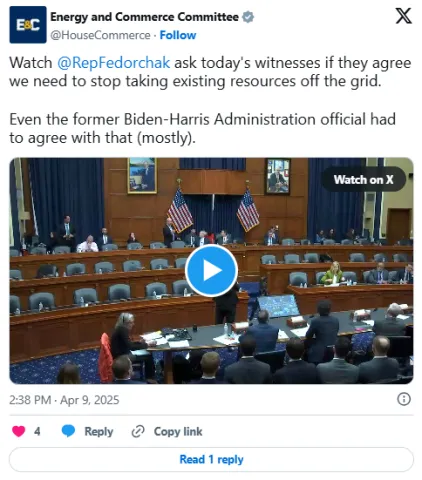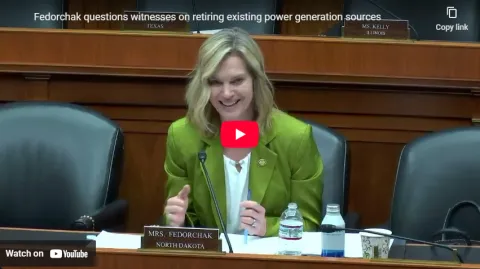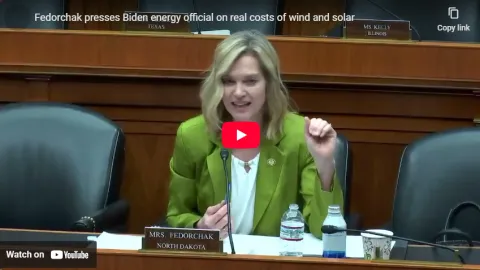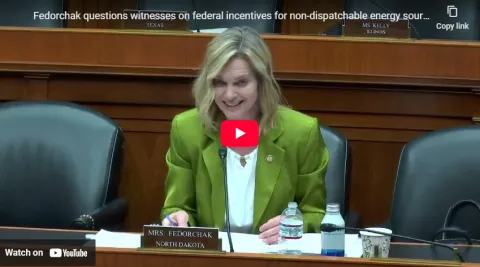Fedorchak questions witnesses at Energy & Commerce hearing on American AI leadership
Washington, D.C. — At today’s House Committee on Energy and Commerce hearing on American Artificial Intelligence (AI) leadership, Congresswoman Julie Fedorchak (R-ND) raised serious concerns about whether America’s power grid is ready to handle skyrocketing demand. She questioned witnesses on the consequences of retiring reliable energy sources too soon, the true costs of bringing wind and solar onto the grid, and the urgent need for market signals that match real-world reliability needs. Fedorchak called for smart, balanced federal policies that help meet the rising energy demands of emerging industries like artificial intelligence without sacrificing reliability or affordability.

Rep. Fedorchak opened her questioning by sounding the alarm on the growing mismatch between the nation’s energy supply and demand. She warned that the U.S. is underpowered today—even before factoring in the growing energy needs of industries such as AI. She asked the witnesses whether the U.S. should stop retiring existing power generation sources that are still viable. Every panelist agreed we need every available megawatt. Watch:

Rep. Fedorchak pressed David Turk, former Deputy Secretary of Energy for the Biden administration, to clarify his claim that wind and solar are the “cheapest” resources added to the grid. She pointed out that these calculations exclude the cost of transmission, and the cost of generation needed to back up renewables when they don’t produce, which is passed on to customers in their energy bills. Watch:

Rep. Fedorchak asked the witnesses whether it’s appropriate for the federal government to continue heavily incentivizing non-dispatchable power sources, such as wind and solar, through tax credits. She cited recent testimony from grid operators who said what they need most is dispatchable, reliable energy. While some witnesses pointed to the potential of long-term investments and storage technology, she emphasized the importance of aligning federal policy with today’s urgent need for reliable, always-available electricity. Watch:
Dr. Eric Schmidt, Chair, Special Competitive Studies Project
Manish Bhatia, Executive Vice President of Global Operations, Micron Technology
Alexandr Wang, Founder and Chief Executive Officer, Scale AI
The Honorable David Turk, Distinguished Visiting Fellow, Center on Global Energy Policy, Columbia University
###
